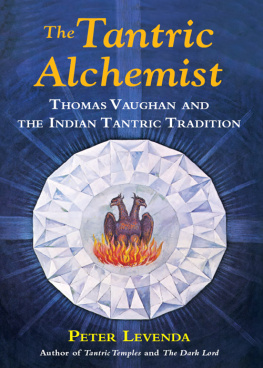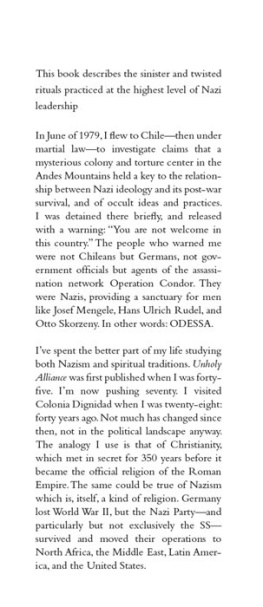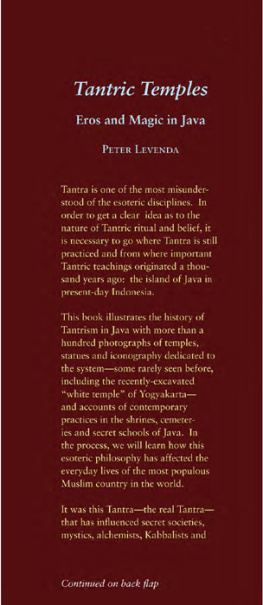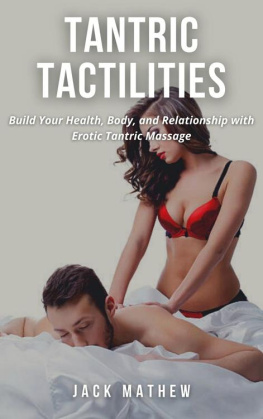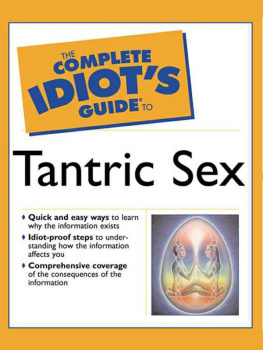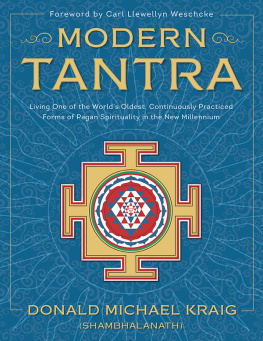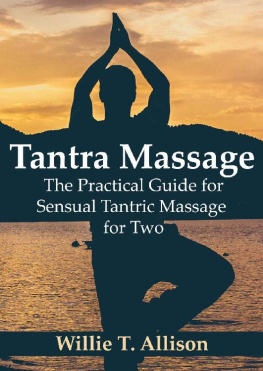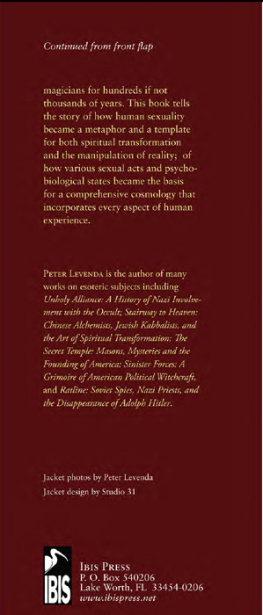In the seventeenth century the Welsh alchemist Thomas Vaughan, and his wife and alchemical partner Rebecca, died under mysterious circumstances. What they were doing and how it might have led to their deaths has remained a secret ... even though the true nature of their experiments is described in code in Vaughan's published works.
Readers will find that the many disparate threads of an authentic spiritual tradition are woven together here in a startling tapestry that revealswithout pretense or euphemismthe psycho-sexual technique that is at the root of both Tantra and Alchemy: that is to say, of both Asian and European forms of esoteric praxis.
Using the works of Vaughan as his text, Levenda applies the twilight language of Tantra to the surreal prose of the alchemist and in the process lays bare the lineaments of the arcane tradition that gave rise to the legend of Christian Rosenkreutz, the reputed founder of Rosicrucianism who learned his art in the East; and to the nineteenth and twentieth century occult movements lead by such luminaries as P.B. Randolph, Theodore Reuss, Helena Blavatsky, and Aleister Crowley who also sought (and discovered) this technology in the religions and cultures of Asia.

Published in 2015 by Ibis Press
A division of Nicolas-Hays, Inc.
P. O. Box 540206
Lake Worth, FL 33454-0206
www.ibispress.net
Distributed to the trade by
Red Wheel/Weiser, LLC
65 Parker St. Ste. 7
Newburyport, MA 01950
www.redwheelweiser.com
Copyright 2015 by Peter Levenda
All rights reserved. No part of this publication may be
reproduced or transmitted in any form or by any means, electronic
or mechanical, including photocopying, recording, or by any information
storage and retrieval system, without permission in writing from
Nicolas-Hays, Inc. Reviewers may quote brief passages.
ISBN 978-0-89254-213-0
Ebook: ISBN 978-0-89254-629-9
Library of Congress Cataloging-in-Publication Data
Available Upon request
Book design and production by Studio 31
www.studio31.com
[MV]
Printed in the United States of America
DEDICATION
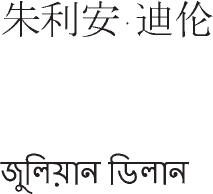
CONTENTS
ILLUSTRATIONS
The Emerald Tablet by Heinrich Khunrath
Photo Insert
INTRODUCTION
There is no question, then, of developing new mythologies as if a mythology was a kind of fancy dress that made life more exciting. The very idea that mythology is something one invents suggests an unpardonable arrogance, as if myth were at our beck and call. Rather, it is we, the will of each and every one of us, that are at the beck and call of myth.
Roberto Calasso
... one may regard the myth as a projection of an existential reality which seeks its own truth in a total view of things ...
Hans Jonas
I came to this study many years ago. In 1968, the University Press of New York published an edition of A. E. Waite's 1919 The Works of Thomas Vaughan: Mystic and Alchemist along with a new Foreword by Father of the Beats Kenneth Rexroth (19051982). I had been studying another of Waite's works, The Book of Ceremonial Magic, as well as Aleister Crowley's Magick In Theory and Practice, along with a copy of the Dao De Jing in English translation. I was still in high school in the Bronx and, well, it was the Sixties.
The very first article I wrote for my high school magazine (and thus the very first article I wrote about anything) was about alchemy. It concerned the famous case of the seventeenth century scientist Jan Baptist van Helmont (15791644) and a demonstration of the transmutation of base metal into gold in his presence, Rexroth set out the curriculum that I was to followfrom alchemy to Chinese and Indian alchemy, yoga, and Tantrain order to understand what Thomas and Rebecca Vaughan were up to in the seventeenth century. In fact, it was Rexroth's allusion to Chinese alchemy that inspired me to begin a study of written Chinese so that I would be able to locate and translate alchemical texts that had so far not been made available in English. It was that study which developed into a serious interest in Mandarin, that eventuallyin 1984found me fully involved in China trade and which set me on a course that would see me spending the better part of three decades in Asia.
All this because of a collection of writings by a seventeenth century Welsh alchemist and a foreword by a twentieth century American poet. Yet, I am not the only one to have been affected this way by Vaughan's work.
His reputation was revived in a work by Mary Anne Atwood (18171910) entitled A Suggestive Inquiry into Hermetic Philosophy. Originally published in 1850 and almost immediately pulled from circulation, most copies destroyed, this erudite and penetrating look at alchemy was the result of Atwood's study of the subject while she still lived at home with her occultist father. It was her father who suggested to her that she write what was essentially the prose version of a long, hermetic poem he was composing. She did so, and her father had the 600-page book published, but without first reading it himself. When he finally did, he was shocked at the way his daughter had revealed so many alchemical secrets. He bought all the copies he could find and he and his daughter burned them in the garden outside their home, along with the only draft of his poem. A few copies of her book escaped the holocaust, however, which is how we are able to read it today.
She never wrote another book again even though she lived for sixty more years.
There is much food here for speculation and wonder, and not a little sadness, but we will restrain ourselves to the matter at hand, which is Atwood's appraisal of the work of Thomas Vaughan. She writes, ... the one Art and medium of vital perfectibility is more clearly shown in his writings than in those of any other English author.
It was this reference to Vaughan that excited A. E. Waite himself and moved him along a path of esoteric study. This path eventually led him to the Hermetic Order of the Golden Dawn and to the authorship of dozens of heavy tomes on virtually every occult science and discipline known at the time: from works on Kabbalah to alchemy, ceremonial magic, secret societies, the Tarot, the Holy Grail, and the like.
And it was due to Waite's fascination with Vaughan that this writer developed his own lifelong interest, wound up in China, visited Daoist temples in Beijing and Shanghai, found himself running a sales and marketing operation from a base in Kuala Lumpur, photographing Indian temples in Java, hunting Nazis in South America, and a host of other strange occupations ... all because of Thomas Vaughan, A. E. Waite, and Kenneth Rexroth.
And especially because of alchemy.
IN MY CAREER I HAVE PUBLISHED some dozen books or more, several of which have been translated into numerous languages, and I have written many more than I have actually published. Over the course of the past forty years or so people have asked me to diverge from my usual position of uncommitted observer and reporter on such things as religion, politics, cults, and esoterica in order to write or speak more frankly on what it is that I believe to be true. Normally, I leave that to readers to decide for themselves; I don't like it when someone who is supposed to be a historian or investigative journalist intrudes too much into the story being told. I like to make up my own mind about things: just give me the data, the facts as they are known, and I will take it from there. At the same time, I am very aware of the criticism levelled at historians and journalists that there is no way to extricate oneself or one's point of view from the story being told. There is no absolute standard of truth; every history is a narrative, a story being told from a specific point of view no matter how hard we try to be objective. Indeed, my own research over the past decades has shown me that most of what we believe to be history is actually carefully crafted fiction.
Next page
